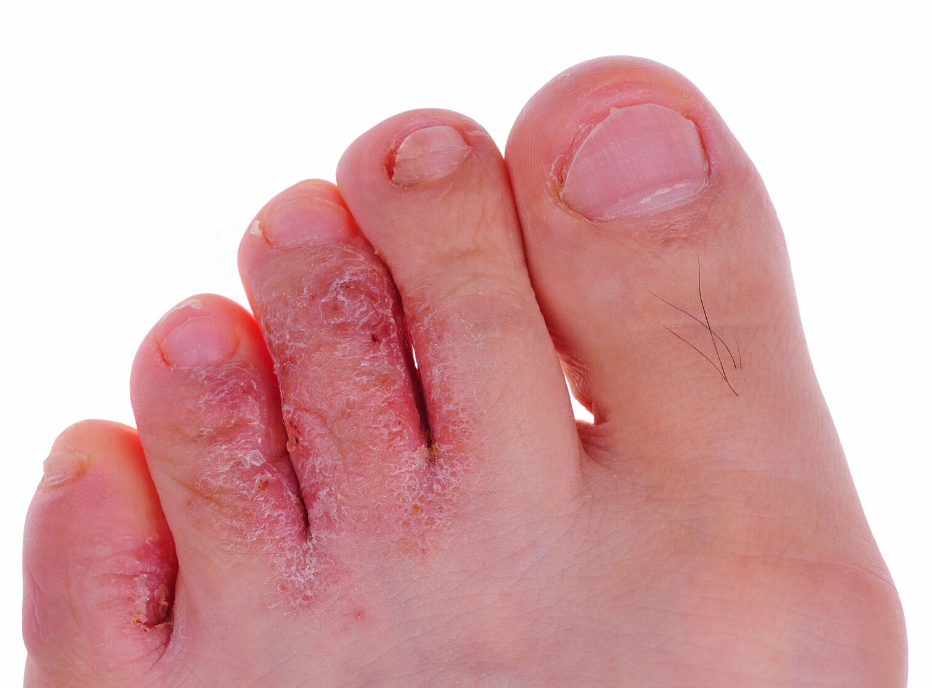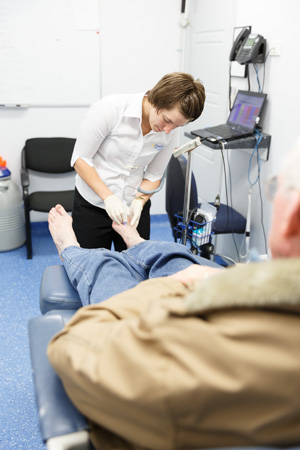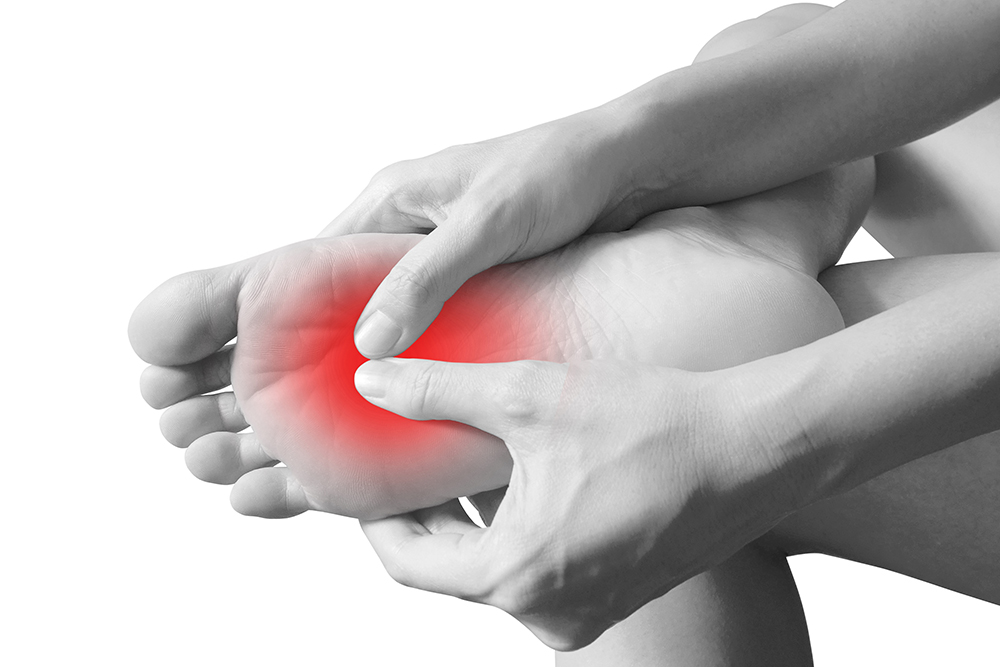
 Are burning feet making your days long and uncomfortable, or keeping you awake at night? While burning feet is a common complaint in the elderly, it can affect anyone and for a number of reasons. As one of the keys to managing the feeling of burning feet is to address the cause, we’ve shared our top six causes of burning feet that we see and help with here at My FootDr.
Are burning feet making your days long and uncomfortable, or keeping you awake at night? While burning feet is a common complaint in the elderly, it can affect anyone and for a number of reasons. As one of the keys to managing the feeling of burning feet is to address the cause, we’ve shared our top six causes of burning feet that we see and help with here at My FootDr.
1. Your Foot Posture
Your foot posture dictates how your feet take on pressure and forces every time we walk. While ideally, our weight will be distributed relatively evenly as we walk, certain foot types can make us predisposed to high areas of localised pressure, leading to ‘hot spots’ that produce heat, redness and – you guessed it – burning.
A common example is the high arched foot, which has little contact with the ground and hence weight distribution in the arch, focusing the main areas of pressure on the heel and the ball of the foot. Any differences in the length of your legs, even if it’s 6mm, can also throw this off significantly, with one foot taking disproportionately more weight than the other.
Medical conditions and other foot problems can also come in here – with corns, callus, warts and prominent swollen joints also taking more pressure during walking and potentially resulting in burning sensations.
2. Peripheral Neuropathy (Diabetes)
 Peripheral neuropathy describes damage to the nerves that travel from the spine out to the peripheries – our feet and hands. It’s a long pathway from the spine to the feet, and damage at any point along the track can produce neural symptoms in the feet including numbness, tingling, and burning.
Peripheral neuropathy describes damage to the nerves that travel from the spine out to the peripheries – our feet and hands. It’s a long pathway from the spine to the feet, and damage at any point along the track can produce neural symptoms in the feet including numbness, tingling, and burning.
Diabetes is one of the most common causes of peripheral neuropathy, with studies showing that up to 61% of Australians affected by diabetes have neuropathy to some extent. The reason for this is that elevated and uncontrolled blood sugar levels over a prolonged period can damage the nerves, weakening their walls and dulling their signal transmission, creating a number of changes to the sensation of the feet. The effects tend to come on gradually, and worsen over time, meaning that the burning can worsen or even change to a numb sensation instead. Learn more about how diabetes affects the nerves and feet here.
Other causes of peripheral neuropathy include autoimmune diseases, the side-effects of medical treatments like chemotherapy, hereditary diseases, infections, chemical exposure and more.
3. Morton’s Neuroma
A Morton’s neuroma describes a painful, swollen lump in the foot caused by the inflammation of the lining of a nerve at a specific point. It most often presents between the second and third, or the third and fourth toes. As the swelling compresses and irritates the nerve, a number of neural symptoms can present in the foot including burning.
Your burning sensation, as well as pain, will be worsened when wearing tight or narrow footwear, as it squeezes the bones in the foot closer together, further irritating the nerve. Neuromas are a common problem that we treat here at My FootDr, and we can help manage your burning sensation by relieving the pressure away from the inflamed nerve lining.
4. Nerve Compression Or Entrapment (Tarsal Tunnel Syndrome)
You have a small tunnel on the inside of your ankle called your tarsal tunnel. This tunnel provides a convenient pathway for many tendons, arteries, veins and nerves that it houses. This includes the posterior tibial nerve, which branches off to innervate the foot.
Sometimes, the structures in the tarsal tunnel, including the posterior tibial nerve, can become compressed and start producing neural symptoms including burning. Causes of compression or entrapment in the tarsal tunnel include having unsupported flat feet which narrow the space available in the tunnel, having a spur, cyst or swollen tendon in the tunnel which takes up space and compresses the nerve, an injury around the ankle where the tunnel structures are impacted by the swelling, or other inflammatory conditions or problems that compress the nerve in the tunnel. There are various other points along the nerve where compression on entrapment can occur too.
We often use orthotics and other devices to ‘open up’ and increase the space of the tarsal tunnel. By giving the nerve more room within the tunnel, the compression is reduced, and symptoms can be alleviated.
5. Traumatic Nerve Damage (Injury)
Just like traumatic injuries can injure our muscles, ligaments and tendons, our nerves can become damaged too, sparking a series of neural symptoms including burning. The trauma may be from direct impact to the foot or leg (having your foot stepped on, dropping something on it, falling on your leg, impact from a soccer ball, etc) or it may be much further up – like injury to the spine where the nerve originates.
6. Athlete’s Foot (Fungal Infection)
Athlete’s foot can also produce a more temporary and specific burning sensation on the sole of the foot and between the toes. This fungal infection affects the outer skin layer, resulting in dryness, skin peeling, redness, itching, burning and the general appearance of damaged, irritated skin.
The reason that a fungal infection can feel like burning is because the fungus feeds on keratin – a protein found in the skin, hair and nails. Thankfully, the treatment for fungal skin infections is fairly straightforward – an anti-fungal paired with the right home-care protocols. We run through all of this with you to show you the best way to beat your athlete’s foot infection.
Other Causes Of Burning Feet
Other causes of burning feet described in medical literature include vitamin deficiencies (particularly riboflavin and vitamin B12), alcoholism, renal failure, hypothyroidism, chronic regional pain syndrome, hereditary disorders like Charcot-Marie-Tooth Disease, or it can be idiopathic, where the cause is unknown.
If you’re worried about burning feet, we can help. Our podiatrists perform comprehensive assessments to diagnose the cause of the burning sensations you’re experiencing, and implement evidence-based treatments from the range of world-class services we have available. If the cause turns out to be unrelated to your feet or legs, we’ll refer you to the right person that can help.
Book your appointment with us online here or call us on 1800 FOOT DR.





